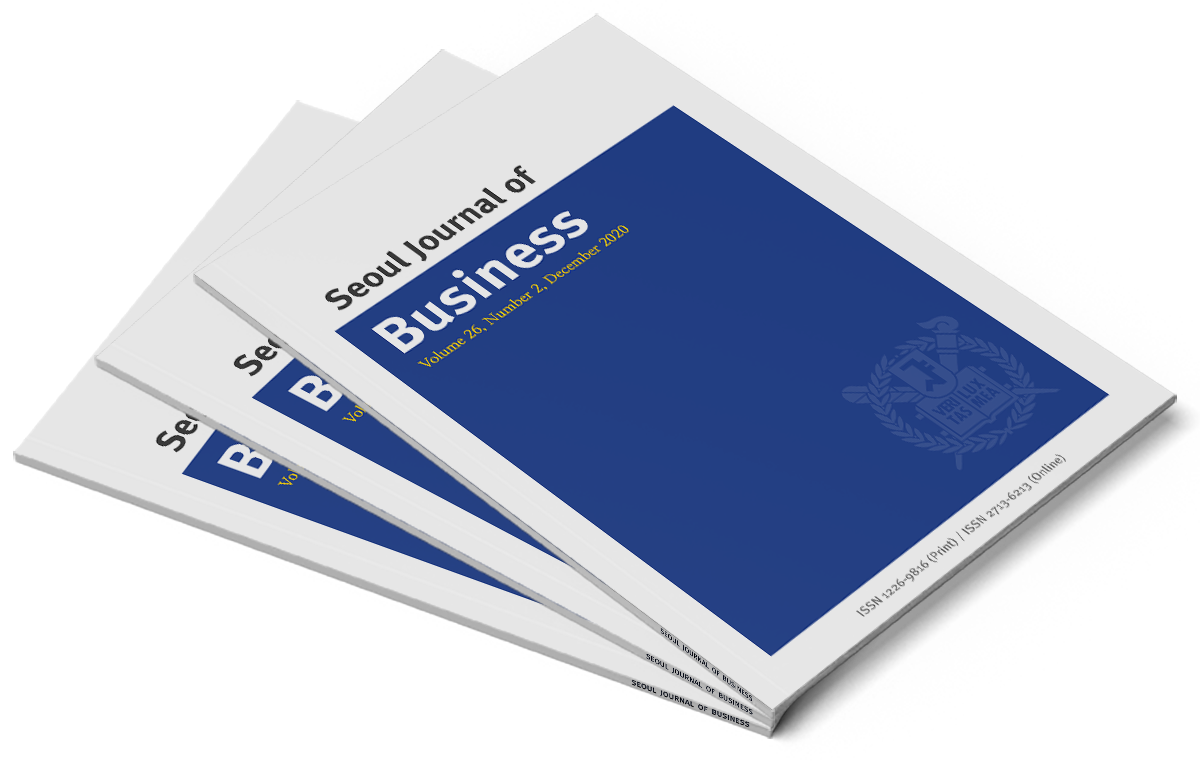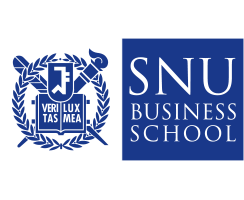Recent Issues
Vol.30/1 (2024, June)
The Fragility of Price Informativeness
Author Jungsuk Han
Keywords informed trading, information acquisition, intertemporal feedback, price informativeness, uncertainty
Download
This paper investigates the influence of uncertainty on information acquisition in financial markets with information asymmetries. Using a variation of the Kyle (1985) model, we analyze the interactions among short-horizon informed traders, linking information acquisition to different levels of fundamental uncertainty. Expectations of future changes in information
acquisition shape current trading incentives, impacting subsequent information acquisition. This feedback can lead to a self-fulfilling collapse of price informativeness. Our findings suggest that either too little or too much fundamental volatility may result in uninformative prices, creating market fragility.
Vol.29/2 (2023, December)
Retraction Note: Benefit of flexibility in case of machine failures
Author retraction note
Keywords -
Download
-
Vol.29/2 (2023, December)
Erratum to "The Effect of Supply Chain Integration on Supply Chain Risk Management Capability and Firm Performance in the Ppuri Industry" by Jaewook Jung, Jaeho Shin, and Hongsuk Yang
Author Erratum
Keywords -
Download
-
Vol.29/2 (2023, December)
The Intermediary Role of ESG Ratings in the Relation between the Issuance of Sustainability Reports and the Cost of Equity Capital
Author Hee-Yeon Sunwoo, A-Reum Jung, Sehee Kim, and Woo-Jong Lee
Keywords non-financial disclosure, sustainability reports, cost of equity capital, ESG rating, information processing costs
Download
The claimed association between the issuance of sustainability reports and the cost of equity capital does not hold for Korean listed companies. We propose two potential explanations for the muted association. First, the sustainability reports may not convey value-relevant information. Second, investors may not fully process unstructured sustainability information. We do not find a significant cross-sectional variation across corporate governance quality, rejecting the former. However, we find evidence that the issuance of sustainability reports decreases the cost of equity when supplemented with ESG ratings, supporting the latter. We conclude that ESG ratings facilitate investors processing of sustainability information.
Vol.29/2 (2023, December)
Financial Equilibrium with Heterogeneous Information Processing Efficiency
Author Jungsuk Han
Keywords Seasoned equity offering; post-SEO performance; Management forecasts; Managerial optimism; Main banks
Download
This paper examines a model where investors’ varying information processing abilities influence financial market equilibrium through price informativeness. When prices are sufficiently informative, high-efficiency investors specialize in high-signal-efficiency assets, while low-efficiency investors rely on price information and specialize in low-signal-efficiency assets. Consequently, assets with low signal efficiency exhibit higher risk premiums compared to those with high signal efficiency. This suggests that individuals with lower information processing efficiency may hold more small stocks with less efficient signals, potentially leading to higher risk premiums in small stocks compared to larger ones, driven by information-related factors.
Vol.29/2 (2023, December)
AACSB Post-Doctoral Bridge Program: A Non-Traditional Bridge to Become Scholarly Academic
Author Maria A. Leach-Lopez, Megan M. Leach, and Eunsuh Lee
Keywords Scholarly academic, Accounting faculty, Post-doctoral bridge program, AACSB accreditation, Accounting major
Download
A steady decrease in accounting PhD graduates has led to a shortage of accounting faculty classified as ‘Scholarly Academic’ (SA) according to AACSB standards for accreditation. To increase the supply of qualified accounting faculty, programs like the University of Florida’s Post-Doctoral Bridge Program (PDBP) have evolved to enable faculty to become qualified as Scholarly Academic (SA) per AACSB standards. From 2008 to 2020, the PDBP produced 43 SA qualified graduates from the accounting concentration track of the program. This increase in SA accounting faculty resulted in an average of 3.3 graduates per year, with two-thirds of graduates currently employed in AACSB accredited programs. Results suggest that non-traditional programs like the PDBP are a viable option to help alleviate the shortage of SA accounting faculty faced by academia.
Vol.29/1 (2023, June)
The Overall t-test Investigating a Conflict between the Individual t-test and the Overall F-test in Regression Analysis
Author Sang-June Park and Youjae Yi
Keywords overall effect, overall F-test, overall t-test, individual t-test, regression analysis
Download
Researchers may confront conflicting conclusions on the effects of predictors by the individual t-test and the overall F-test in regression analysis. For example, the overall effect may be significant by the overall F-test whereas none of the individual effects are significant by the individual t-test. This paper shows that the conflict may result from different views on the recovered effects of predictors. It proposes an overall t-test assessing the overall effect, and recommends one to use the overall t-test to investigate the conflict between the individual t-test and the overall F-test. The overall F-test assesses the overall effect under the assumption that the true effects of predictors are exactly captured by the recovered effects of predictors. In contrast, the overall t-test assesses the overall effect under the assumption that the true effects are captured by the means and variance-covariances of the recovered effects. This paper ends with practical guidelines for interpreting the effects of predictors when there exists a conflict between the individual t-test and the overall F-test.
Vol.29/1 (2023, June)
Mandatory Management Forecasts and Post-SEO Performance: Evidence from Japan
Author Wooseok Choi, Jung Wook Shim, Seungbin Oh, and In Young Baik
Keywords Seasoned equity offering; post-SEO performance; Management forecasts; Managerial optimism; Main banks
Download
This study examines the determinants and consequences of seasoned equity offering (SEO) issuers’ decisions to bias their management earnings forecasts before SEOs in Japan, where management forecasts are mandatory. We identify firm characteristics associated with incentives to inflate management forecasts before SEOs: (i) the use of fund to pay debt, (ii) the economic significance of SEO proceeds, and (iii) financial distress. We also find that the effect of those firm characteristics on forecast error can be reduced by strong bank relationships. In addition, we demonstrate that optimism in management forecasts prior to SEOs is associated with post-SEO underperformance.
Vol.29/1 (2023, June)
Meeting and Surpassing Service Quality Thresholds: Quality Dimensions in Software Development and Maintenance Outsourcing
Author Ramanath Subramanyam, Wooje Cho, and M. S. Krishnan
Keywords Service quality, Software project management, Outsourcing software development, Software maintenance, Software engineering
Download
This paper investigates the drivers of client satisfaction in software development and maintenance outsourcing services. Using data collected from 185 outsourcing agreements from a leading global vendor of IT services, we analyze several service quality drivers in terms of their relationship to overall satisfaction. We find that delivery of services within the originally estimated costs is the key driver that can elevate customers from being dissatisfied to satisfied. The results also suggest that the key service quality driver that moves satisfied customers toward higher levels of satisfaction is the vendor’s dedicated adherence to the terms of the service level agreement.
Vol.28/2 (2022, December)
The Association between Social Ties Within Boards and Human Resource Investment in Internal Control
Author HO-YOUNG LEE, JU HYOUNG PARK, HYUN-YOUNG PARK
Keywords board of directors, social ties, human resource investment, internal control, financial reporting
Download
According to prior literature and media articles, outside directors that have social ties with inside directors do not monitor managers appropriately. This study examines the association between social ties within boards and human resource investment in internal control (IC) over financial reporting. Using Korean firm data, we found that social ties within boards are negatively associated with the IC of firms’ accounting and public disclosure departments, which could negatively affect the reliability of their financial reporting and disclosures. These findings have valuable implications for interested parties such as investors and regulators.
Seoul Journal of Business

ISSN 1226-9816 (Print)
ISSN 2713-6213 (Online)
ISSN 2713-6213 (Online)


